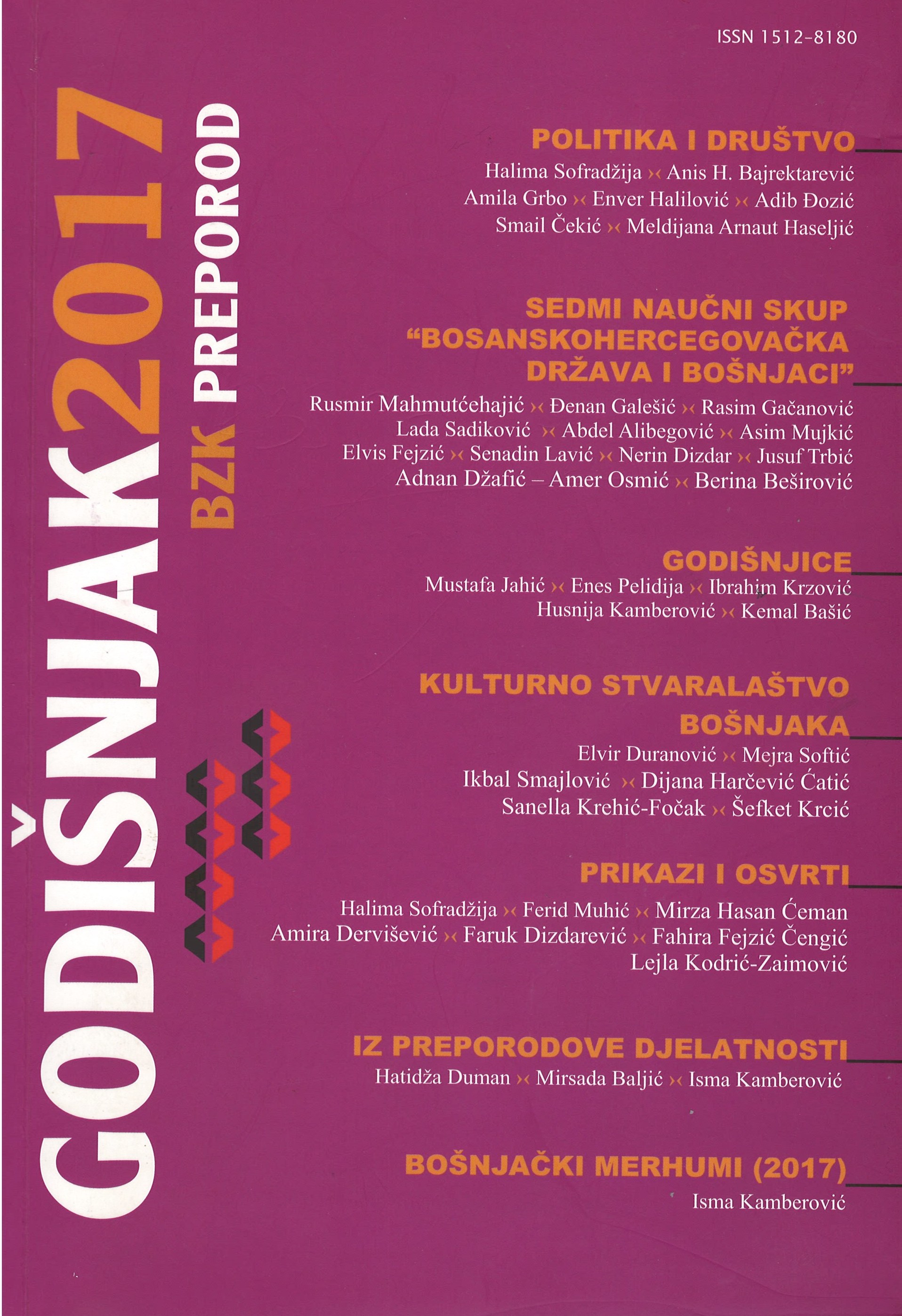Ideološki radikalizam, politički autoritarizam i kolektivistička kultura u Bosni i Hercegovini
IDEOLOGICAL RADICALISM, POLITICAL AUTHORITARISM AND COLLECTIVIST CULTURE IN BOSNIA AND HERZEGOVINA
Author(s): Elvis FejzićSubject(s): Nationalism Studies, EU-Accession / EU-DEvelopment, Politics and Identity, Identity of Collectives
Published by: Bošnjačka zajednica kulture "Preporod"
Keywords: ideology; politics; political culture; state; nation; political pluralism; nationalism; democracy; ethnocracy; European integrations;
Summary/Abstract: The early development of modern politics and political culture in Bosnia and Herzegovina is marked by the destructive influence of the feudal, patriarchal, colonial, conservative and nationalist worldview that is distanced from the original democratic politics. Liberal, socialist, secular and progressive political ideas appear in Bosnian-Herzegovinian political practice only during the Austro-Hungarian rule. The reception of liberal and individualistic values as well as the progressive and socialist ones marked the way for more dynamic development of political culture and civil forms of political life in Bosnia and Herzegovina. Decadent political absolutism in the figure of a monarchical form of government - abolished only after the fall of the Kingdom of Yugoslavia - for a long time was the biggest obstacle to more effective political development in Bosnia and Herzegovina. However, even after the introduction of the republican form of government - the era of republicanism was established after the Second World War - all necessary prerequisites for a better development of political culture in Bosnia and Herzegovina were not created because that socialist regime preferred political monism, i. e. it did not allow openly and unlimited political competition of various ideological and political elites on the political stage. In the period of the independent Bosnian state existence of unfavourable political circumstances - the result of anti-democratic and ethnocratic policies - keep permanently limiting the development of a civil and participatory political culture and, moreover, the acceptance of genuine liberal-democratic values in the social, political and economic sphere.
Journal: Godišnjak Bošnjačke zajednice kulture »Preporod«
- Issue Year: 2017
- Issue No: 1
- Page Range: 233-245
- Page Count: 13
- Language: Bosnian

